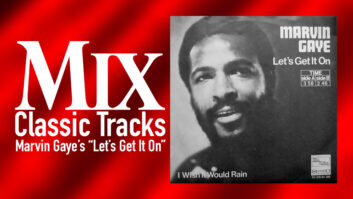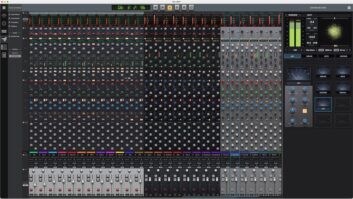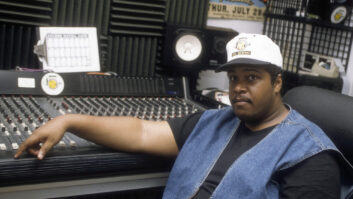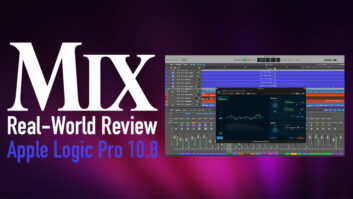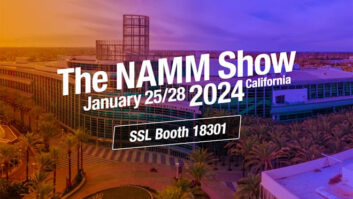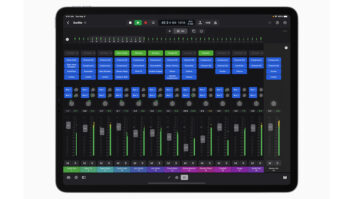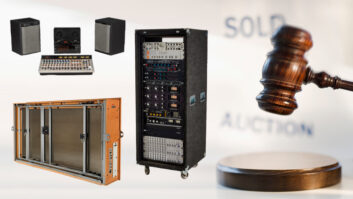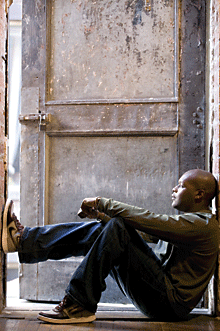
DJ Logic has taken his axe down avenues few would have imagined. Redefining the role of the turntablist, Logic performs with guitarist Vernon Reid in Yohimbe Brothers. He has also recorded with the late Chris Whitley, toured with Ben Harper and the Grateful Dead, and he is coveted by jazz artists such as Medeski, Martin & Wood and John Scofield. His third solo album, Zen of Logic (Rope-a-Dope) continues to grow hip hop organically with some great instrumental performances and the vocal talents of MC Subconscious, Creature and Latasha Nevada Diggs.
Logic has long thought of the turntable as just another instrument in the band. “When I started out, it was just a hobby,” he recalls. “I was 15 or 16 when I started playing with other musicians; it was in an improvisational jazz setting, as well as alternative rock. I was just learning and listening.” From playing community events around his home in the Bronx, N.Y., Logic (real name Jason Kibler) joined the rock band Eye & I, which opened for Living Colour and Body Count. “Playing around musicians, you’re hearing sounds and textures and you want to fit in with the textures going on around you. You want to have a role to play like the saxophonist and keyboardist and drummer,” Logic explains. “Everybody’s passing the ball around. Sometimes I might lay down a groove or sometimes I might just find a certain color to add to what’s going on to be in the mix. So it might not just be scratching; it might just be an artistic thing, doing some abstract sounds or some vocals and manipulating them with either the turntable or the Korg Kaoss Pad. Just having a good ear and playing my role like one of the other musicians.”
Logic and guitarist Reid were among the founding members of the Black Rock Coalition in 1985. Logic was soon also venturing into the jam and jazz worlds, striking up lasting musical relationships with Medeski, Martin & Wood, Charlie Hunter, Joshua Redman, Bob Weir of the Grateful Dead and many others. He recorded his debut, Project Logic, in 1999, followed three years later by The Anomaly. For Zen of Logic, he chose to work again with producer/engineer Scotty Hard (Wu-Tang Clan, Prince Paul). “Scotty is the magician and the maestro of just creating and cutting, and he deserves as much credit as myself,” Logic says. “It’s always good to have that second ear, somebody that’s on the same page as you. Before I started to record, we sat down and I let him hear all the pre-production stuff and we got a game plan.
“A lot of thinking and listening comes before the pre-production ’cause I’m just getting into a zone,” he adds. “[I’m] thinking before I get onto the keyboard or start messing around with the turntable. Those are the tools that I’m getting ready before I start painting my picture. You’re gathering your brushes and looking at your white canvas, and you’re like, ‘Okay, this is what I’m thinking.’ There are a lot of different moods and each track has its own individual feel.”
Logic has a small, windowless studio in Manhattan that he refers to as his “sanctuary.” This is where he frequently loses track of time with his Korg Triton, Moog Voyager, Numark turntables, Vestax DJ mixer, Akai MPC2000 and Korg Kaoss Pad effects processor. “This is what I use to start writing with — just messing around, programming beats and chopping up certain samples and things like that. I’ll go in early in the morning and not leave until the next morning. Things get flowing. That’s how things came about for this record.
“I wanted to have everything right and in place before I went over to [Hard’s] spot,” says Logic. “I basically moved all my equipment and set up shop at his studio [LeBob James in Brooklyn] for about two months — there was a lot of scheduling to do with different musicians.” Tom Camuso co-engineered the record, and Mike Fossenkemper did mastering at TurtleTone in New York City.
The turntablist is constantly collecting beats and sounds. “I have a lot of records from my travels and touring because I’m always digging, looking for obscure stuff. Just from listening to records you get ideas, as well. I wanted to do an Afrobeat thing on this record, so I was listening to a bunch of Afrobeat records to get inspired. I programmed a groove on the MPC and called the wonderful musicians in Antibalas, who are friends of mine.”
Logic still uses the reliable Technics 1200 turntables on occasion, but he’s been won over recently by the capability of the Numark TTX. It allows him more flexibility in fitting in harmonically and rhythmically, as he shows skillfully on the song “Afro Beat.” The voices you hear meshed so well with John Medeski’s keyboard part are being played by Logic. “Those are some African voices, some ladies and some children,” he says. “The cool thing about it is with the Numark TTX, you can do certain things where you tune things in a certain pitch, and if you have a good ear, you know how to sync it up to what’s going on around you. Basically, I just tried to find the right colors to match to what was going on in the track and just kind of blend. It gives it that live feel in a way.”

“Afro Beat” features Medeski playing an oddly processed Hohner String Organ. “It’s great working with Medeski because he just has an open mind,” says Logic. “He collects vintage keyboards, so you never know what kind of toys he’s going to bring to the table.” Logic actually went to Medeski’s Shacklyn studio in Brooklyn to record the keyboards. “He was like, ‘Hey man, I’ve got this cool vintage keyboard from the late ’70s, and we just have to use it.’ I just let him do his thing all through the track and edited it when I got back to my studio. It sounded awesome.”
Medeski plays a Farfisa organ and a Mellotron on “Rat Pack,” and an ARP String Ensemble under Subconscious’ flowing rap on “Hypnotic.” Keyboardist Chris Brown adds clavinet on two tracks and gets a great vintage tone on “9th Ward Blues.” “I think that’s a [Wurlitzer],” recounts Logic. “I love the vintage sounds in the keyboards — how you can put it through effects and pedals. With the [newer] digital stuff, you can’t really put your hands on it; you’ve just got to program it or play it from MIDI. When you’re doing it live, straight from the keyboard — organically — it’s like a whole different feel. You can tell in the sound, too. I know they’re trying to catch up in the sound quality between the analog and digital, but you can still hear a difference. The warmness, that’s what I like. The vintage stuff brings something unique to the track.”
Hard and Logic recorded some of Medeski’s keyboards and some drums to quarter-inch tape using a Studer B67, then used an Apogee Rosetta 200 24-bit A/D converter to send it into Digidesign Pro Tools MIXPlus with 24-bit 888 I/Os. “There’s a difference coming from one [format] to the other,” Logic contends. “There’s a different type of seasoning. You get that warm sound. You’re getting a little extra going into the digital. I always notice that when I listen back to different tracks and CDs. We also used a Neve 8014 mixing console that Scotty got from Bill Laswell, and it’s a great tool, as well.”
Logic’s tribute to the people of New Orleans’ 9th Ward also features Charlie Hunter on bass, six-string guitar and a bit of tweaked harmonica. “I wanted a bluesy vibe and had Charlie come in and play bass. I was just coming up with ideas about what I had seen and experienced in New Orleans. I got this bluesy record and found a harmonica rhythm kind of thing and tried to manipulate it in the track, along with some bluesy vocals. And that’s Charlie on guitar at the end. He wanted to try something different. Everyone knows him from his signature [8-string] guitar, so he wanted to play regular guitar. I thought that was cool — stepping out of his own thing and just doing ‘Charlie.’ He loved the beat and he was coming up with all different types of rhythms.”
Hunter also put some “chickin’ pickin’” guitar on the dub-flavored “Hope Road.” “Hope Road is where Bob Marley lived,” Logic explains. “I talked to Charlie about the vibe, and he just started plucking away, came up with a couple good grooves and we grabbed it up.” The flugelhorn sounds that Logic is manipulating on that song are taken from a turntablist tool record made by Stephen Webber, resident guru of DJ art at Berklee School of Music. “His records are great because I always used to use my old jazz records and mess up my good records that I paid so much money for. I was like, ‘Man, I can’t be scratching up this Miles Davis Kind of Blue,” Logic says. “I met Stephen at the right time, and those are the types of sounds and textures that I was using: trumpet, sax, bass, keyboard stabs — things like that. He showed how you could use the turntable in different ways.”
On “Simmer Slow,” Logic uses something that sounds like gated crickets for the backbeat. “I use a lot of animal sounds: crickets, frogs, dolphins,” he says. “Certain sounds when you manipulate them — bird sounds, squirrel sounds — you put those through some effects and make it sound like some other creative keyboard or percussion sound. Like on those early dub records, King Tubby and Lee ‘Scratch’ Perry, you hear all those interesting sounds in the back, and so I was just trying to be abstract like that — putting in colors and things for the listeners to admire.”
Logic also injects tabla and harp into the mix; the tabla is performed live by Suphula. (Logic previously worked with Suphula on The Anomaly and with tabla breakbeater Karsh Kale on Project Logic.) “The harp I sampled from a record of Japanese harp and flute sounds. I grabbed that ’cause it felt good for that track,” he explains. “Something Distant” features a contagious dancehall beat played by drummer Deantoni Parks and bassist Melvin Gibbs, a sampled and manipulated Arabic vocal and the Moroccan musical stylings of Brahim Fribgane on oud, dumbek and cymbals.
“Smackness” has a slightly unpredictable groove. “That’s me showcasing my turntablism on the hip hop vibe,” he says. “I wanted to come with that ’80s Beastie Boys/Public Enemy vibe.” Logic also gives respect to the Funk Fathers on “One Time.” “That’s the guys that I admired and grew up listening to, ’cause you learn from everybody. You put in your own thing, but you still take a little bit from what you hear. That’s the best teacher.”
And speaking of teaching, Logic does leave his Zen footprint. “Peace Y’All” is all Logic, with beats programmed on the MPC, synched on the computer. “I programmed that and just grabbed stuff up ’cause I have live drummers playing for me. I’ll just grab up a certain edit and start cutting and pasting basically, finding percussion-type sounds to use for the backbeat or the hi-hat.
“And, you’ve got to leave a message in the mix. All positive wisdom.”

